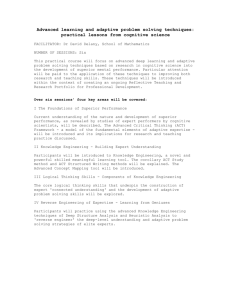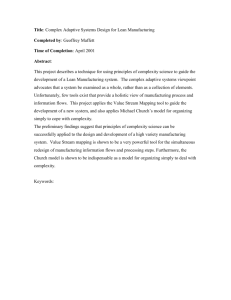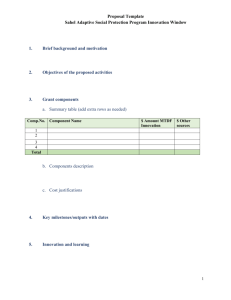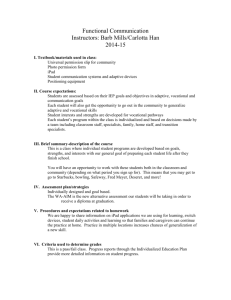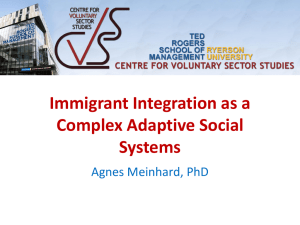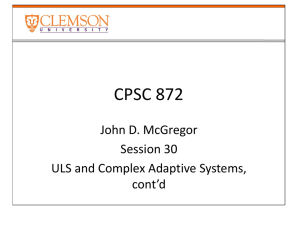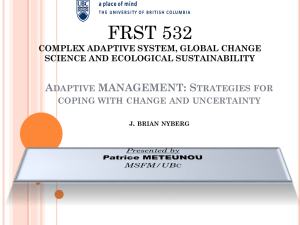here
advertisement
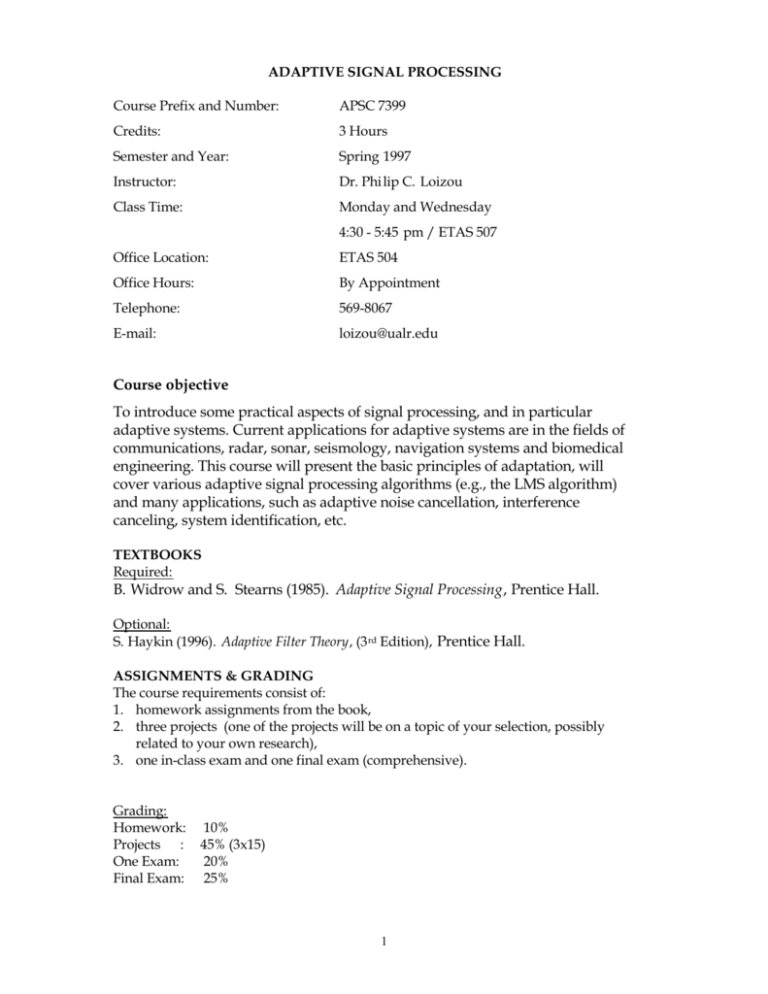
ADAPTIVE SIGNAL PROCESSING Course Prefix and Number: APSC 7399 Credits: 3 Hours Semester and Year: Spring 1997 Instructor: Dr. Phi lip C. Loizou Class Time: Monday and Wednesday 4:30 - 5:45 pm / ETAS 507 Office Location: ETAS 504 Office Hours: By Appointment Telephone: 569-8067 E-mail: loizou@ualr.edu Course objective To introduce some practical aspects of signal processing, and in particular adaptive systems. Current applications for adaptive systems are in the fields of communications, radar, sonar, seismology, navigation systems and biomedical engineering. This course will present the basic principles of adaptation, will cover various adaptive signal processing algorithms (e.g., the LMS algorithm) and many applications, such as adaptive noise cancellation, interference canceling, system identification, etc. TEXTBOOKS Required: B. Widrow and S. Stearns (1985). Adaptive Signal Processing, Prentice Hall. Optional: S. Haykin (1996). Adaptive Filter Theory, (3 rd Edition), Prentice Hall. ASSIGNMENTS & GRADING The course requirements consist of: 1. homework assignments from the book, 2. three projects (one of the projects will be on a topic of your selection, possibly related to your own research), 3. one in-class exam and one final exam (comprehensive). Grading: Homework: Projects : One Exam: Final Exam: 10% 45% (3x15) 20% 25% 1 TOPICS 1. Introduction to discrete-time signal processing (Chap. 7) (a) Impulse response, z-transform, FIR, IIR filters (b) Correlation functions and power spectral density 2. The adaptive linear combiner (Chap. 2) 3. Introduction to gradient search algorithms, steepest-descent algorithm, convergence properties, Newton algorithm. (Chap 3, 4, 5) 4. Adaptive algorithms- LMS algorithm, Recursive Least Squares algorithm, LMS/Newton algorithm (Chap. 6, 8) 5. Frequency domain adaptive filters 6. Applications of adaptive signal processing (Chap. 9) ◊ adaptive modeling and system identification ◊ inverse adaptive modeling, deconvolution and equalization ◊ adaptive control systems ◊ adaptive interference canceling - canceling noise, canceling periodic interference, canceling interference in ECG signals, etc. 7. Linear optimum filtering (if time permits) ◊ Wiener filters ◊ Kalman filters 2 Students with Disabilities It is the policy of UALR to accommodate students with disabilities, pursuant to federal and state law. Any student with a disability who needs accommodation, for example in seating placement or in arrangements for examinations, should inform the instructor at the beginning of the course. The chair of the departments offering this course is also available to assist with accommodations. Students with disabilities are also encouraged to contact the Office of Disability Support Services, which is located in the Donaghey Student Center, Room 103, telephone 569-3143. 3
